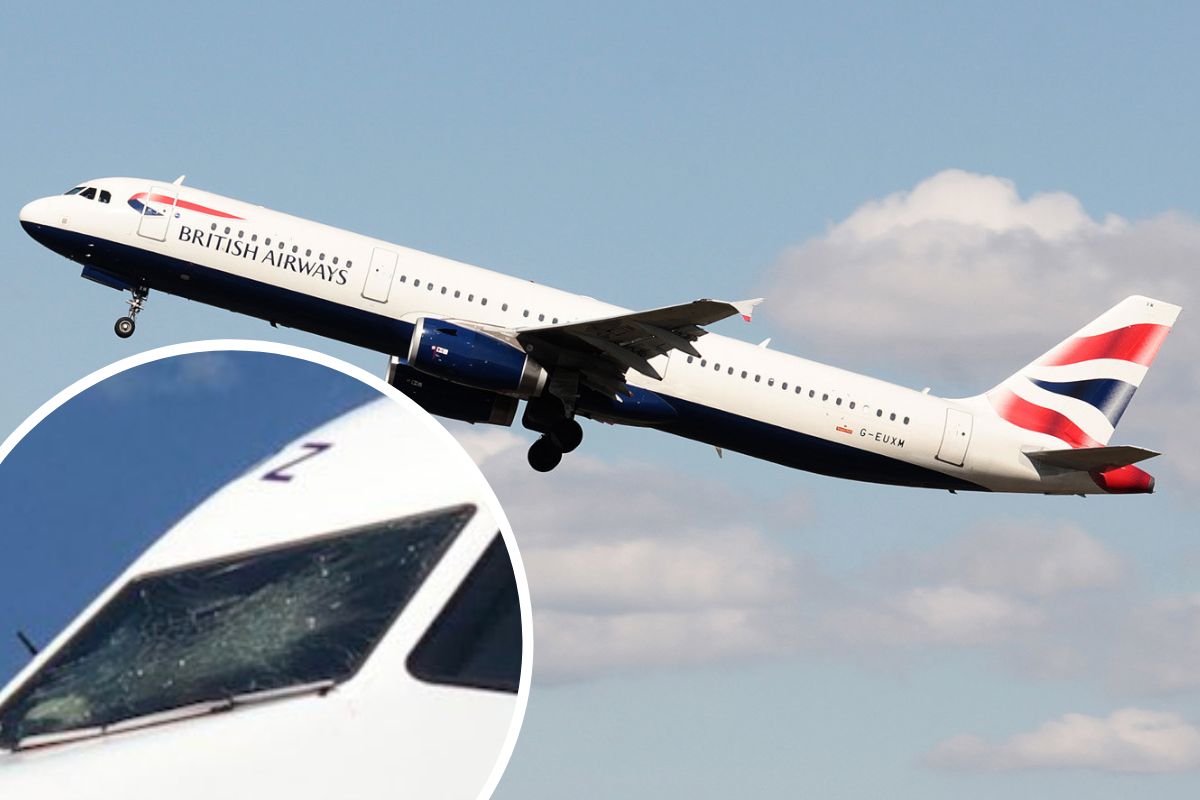
The cockpit windscreen of a British Airways flight to the Greek island of Rhodes suddenly shattered mid-flight prompting an emergency diversion to Athens where the flight landed safely a short time later. The cause of the damage remains a mystery.
Passenger Caroline Edmunds took a picture of the extensive damage to the front left-hand-side windscreen after the two-year-old Airbus A321NEO aircraft had landed in Athens.
A big ‘thank you’ to the @British_Airways pilot who got us safely diverted to Athens after our plane’s windscreen broke … terrifying
— Caroline Edmunds (@mrssteve) September 24, 2022Now happily waiting for another not so dramatic flight to Rhodes! #britishairways #BA0624 pic.twitter.com/P5bjfKl6Bj
Caroline described the incident as “terrifying” but in a tweet said: “A big ‘thank you’ to the British Airways pilot who got us safely diverted to Athens after our plane’s windscreen broke.”
“Now happily waiting for another not so dramatic flight to Rhodes”.
A spokesperson for British Airways did not say what caused the windscreen to crack at high altitude, but in a statement, the airline said: “Due to a technical issue, the flight diverted to Athens and landed safely.”
“We apologised to the customers and a replacement aircraft was arranged to get them to their final destination.”
Damaged windscreens are often caused by bird strikes, but these normally occur at lower altitudes during landing and takeoff. It’s much rarer for the cockpit windscreen to crack or shatter at higher altitudes but it does occasionally happen.
In 2018, the windscreen on the First Officer’s sides of a Sichuan Airlines-operated Airbus A319 burst completely at a high altitude injuring the First Officer. Thankfully, the aircraft landed without further incident and an investigation by China’s civil aviation authority laid the blame on a faulty seal.
Famously, in 1990, a British Airways Captain was partially sucked out of the cockpit when an improperly installed windscreen panel separated from the aircraft. The First Officer and flight attendants had to hold onto Captain Timothy Lancaster’s belt and ankles to stop him from being completely dragged outside the aircraft.
According to some reports, the crew feared Lancaster was dead but continued to hold onto him because they feared he would be sucked into the engine and endanger the aircraft even further.
Miraculously, Lancaster survived with suffered several fractures including to his right arm, as well as frostbite.
Mateusz Maszczynski honed his skills as an international flight attendant at the most prominent airline in the Middle East and has been flying ever since... most recently for a well known European airline. Matt is passionate about the aviation industry and has become an expert in passenger experience and human-centric stories. Always keeping an ear close to the ground, Matt's industry insights, analysis and news coverage is frequently relied upon by some of the biggest names in journalism.







